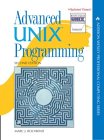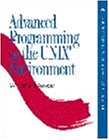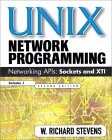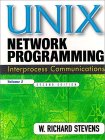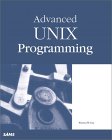Description: Signals are software interrupts delivered to a process by the operating system. Signals can also be issued by the operating system based on system or error conditions. There is a default behavior for some (i.e. a process is terminated when it receives an inturrupt SIGINT signal by pressing keystrokes ctrl-C) but this tutorial shows how to handle the signal by defining callback functions to manage the signal. Where possible, this allows one to close files and perform operations and react in a manner defined by the programmer.
Note that not all signals can be handled.
Types of signals:
| Signal | Value | Description |
|---|---|---|
| SIGHUP | 1 | Hangup (POSIX) Report that user's terminal is disconnected. Signal used to report the termination of the controlling process. |
| SIGINT | 2 | Interrupt (ANSI) Program interrupt. (ctrl-c) |
| SIGQUIT | 3 | Quit (POSIX) Terminate process and generate core dump. |
| SIGILL | 4 | Illegal Instruction (ANSI) Generally indicates that the executable file is corrupted or use of data where a pointer to a function was expected. |
| SIGTRAP | 5 | Trace trap (POSIX) |
| SIGABRT SIGIOT | 6 | Abort (ANSI) IOT trap (4.2 BSD) Process detects error and reports by calling abort |
| SIGBUS | 7 | BUS error (4.2 BSD) Indicates an access to an invalid address. |
| SIGFPE | 8 | Floating-Point arithmetic Exception (ANSI). This includes division by zero and overflow.The IEEE Standard for Binary Floating-Point Arithmetic (ANSI/IEEE Std 754-1985) defines various floating-point exceptions. |
| SIGKILL | 9 | Kill, unblockable (POSIX) Cause immediate program termination. Can not be handled, blocked or ignored. |
| SIGUSR1 | 10 | User-defined signal 1 |
| SIGSEGV | 11 | Segmentation Violation (ANSI) Occurs when a program tries to read or write outside the memory that is allocated for it by the operating system, dereferencing a bad or NULL pointer. Indicates an invalid access to valid memory. |
| SIGUSR2 | 12 | User-defined signal 2 |
| SIGPIPE | 13 | Broken pipe (POSIX) Error condition like trying to write to a socket which is not connected. |
| SIGALRM | 14 | Alarm clock (POSIX) Indicates expiration of a timer. Used by the alarm() function. |
| SIGTERM | 15 | Termination (ANSI) This signal can be blocked, handled, and ignored. Generated by "kill" command. |
| SIGSTKFLT | 16 | Stack fault |
| SIGCHLD SIGCLD | 17 | Child status has changed (POSIX) Signal sent to parent process whenever one of its child processes terminates or stops. See the YoLinux.com Fork, exec, wait, waitpid tutorial |
| SIGCONT | 18 | Continue (POSIX) Signal sent to process to make it continue. |
| SIGSTOP | 19 | Stop, unblockable (POSIX) Stop a process. This signal cannot be handled, ignored, or blocked. |
| SIGTSTP | 20 | Keyboard stop (POSIX) Interactive stop signal. This signal can be handled and ignored. (ctrl-z) |
| SIGTTIN | 21 | Background read from tty (POSIX) |
| SIGTTOU | 22 | Background write to tty (POSIX) |
| SIGURG | 23 | Urgent condition on socket (4.2 BSD) Signal sent when "urgent" or out-of-band data arrives on a socket. |
| SIGXCPU | 24 | CPU limit exceeded (4.2 BSD) |
| SIGXFSZ | 25 | File size limit exceeded (4.2 BSD) |
| SIGVTALRM | 26 | Virtual Time Alarm (4.2 BSD) Indicates expiration of a timer. |
| SIGPROF | 27 | Profiling alarm clock (4.2 BSD) Indicates expiration of a timer. Use for code profiling facilities. |
| SIGWINCH | 28 | Window size change (4.3 BSD, Sun) |
| SIGIO SIGPOLL | 29 | I/O now possible (4.2 BSD) Pollable event occurred (System V) Signal sent when file descriptor is ready to perform I/O (generated by sockets) |
| SIGPWR | 30 | Power failure restart (System V) |
| SIGSYS | 31 | Bad system call |
Signals which can be processed include: SIGINT, SIGABRT, SIGFPE, SIGILL, SIGSEGV, SIGTERM, SIGHUP
List all signals available to the system:
Use the command: kill -l$ kill -l 1) SIGHUP 2) SIGINT 3) SIGQUIT 4) SIGILL 5) SIGTRAP 6) SIGABRT 7) SIGBUS 8) SIGFPE 9) SIGKILL 10) SIGUSR1 11) SIGSEGV 12) SIGUSR2 13) SIGPIPE 14) SIGALRM 15) SIGTERM 17) SIGCHLD 18) SIGCONT 19) SIGSTOP 20) SIGTSTP 21) SIGTTIN 22) SIGTTOU 23) SIGURG 24) SIGXCPU 25) SIGXFSZ 26) SIGVTALRM 27) SIGPROF 28) SIGWINCH 29) SIGIO 30) SIGPWR 31) SIGSYS 34) SIGRTMIN 35) SIGRTMIN+1 36) SIGRTMIN+2 37) SIGRTMIN+3 38) SIGRTMIN+4 39) SIGRTMIN+5 40) SIGRTMIN+6 41) SIGRTMIN+7 42) SIGRTMIN+8 43) SIGRTMIN+9 44) SIGRTMIN+10 45) SIGRTMIN+11 46) SIGRTMIN+12 47) SIGRTMIN+13 48) SIGRTMIN+14 49) SIGRTMIN+15 50) SIGRTMAX-14 51) SIGRTMAX-13 52) SIGRTMAX-12 53) SIGRTMAX-11 54) SIGRTMAX-10 55) SIGRTMAX-9 56) SIGRTMAX-8 57) SIGRTMAX-7 58) SIGRTMAX-6 59) SIGRTMAX-5 60) SIGRTMAX-4 61) SIGRTMAX-3 62) SIGRTMAX-2 63) SIGRTMAX-1 64) SIGRTMAX
Sending a process a signal:
A process can be sent a signal using the "kill" command: kill -s signal-number pidWhere the pid (process id) can be obtained using the "ps" command.
Basic C signal callback function example:
File: signalExample.cpp
#include <unistd.h>
#include <stdio.h>
#include <stdlib.h>
#include <signal.h>
// Define the function to be called when ctrl-c (SIGINT) signal is sent to process
void
signal_callback_handler(int signum)
{
printf("Caught signal %d\n",signum);
// Cleanup and close up stuff here
// Terminate program
exit(signum);
}
int main()
{
// Register signal and signal handler
signal(SIGINT, signal_callback_handler);
while(1)
{
printf("Program processing stuff here.\n");
sleep(1);
}
return EXIT_SUCCESS;
}
Compile: gcc signalExample.cpp
Run: a.out
Results:
Program processing stuff here. Program processing stuff here. Caught signal 2
The function prototype: void (*signal (int sig, void (*func)(int)))(int);
File: signalHandler.hpp
#ifndef __SIGNALHANDLER_H__
#define __SIGNALHANDLER_H_
#include <stdexcept>
using std::runtime_error
class SignalException : public runtime_error
{
public:
SignalException(const std::string& _message)
: std::runtime_error(_message)
{}
};
class SignalHandler
{
protected:
static bool mbGotExitSignal;
public:
SignalHandler();
~SignalHandler();
static bool gotExitSignal();
static void setExitSignal(bool _bExitSignal);
void setupSignalHandlers();
static void exitSignalHandler(int _ignored);
};
#endif
File: signalHandler.cpp
#include <signal.h>
#include <errno.h>
#include "signalHandler.hpp
bool SignalHandler::mbGotExitSignal = false;
/**
* Default Contructor.
*/
SignalHandler::SignalHandler()
{
}
/**
* Destructor.
*/
SignalHandler::~SignalHandler()
{
}
/**
* Returns the bool flag indicating whether we received an exit signal
* @return Flag indicating shutdown of program
*/
bool SignalHandler::gotExitSignal()
{
return mbGotExitSignal;
}
/**
* Sets the bool flag indicating whether we received an exit signal
*/
void SignalHandler::setExitSignal(bool _bExitSignal)
{
mbGotExitSignal = _bExitSignal;
}
/**
* Sets exit signal to true.
* @param[in] _ignored Not used but required by function prototype
* to match required handler.
*/
void SignalHandler::exitSignalHandler(int _ignored)
{
mbGotExitSignal = true;
}
/**
* Set up the signal handlers for CTRL-C.
*/
void SignalHandler::setupSignalHandlers()
{
if (signal((int) SIGINT, SignalHandler::exitSignalHandler) == SIG_ERR)
{
throw SignalException("!!!!! Error setting up signal handlers !!!!!");
}
}
File: test.cpp
#include <iostream>
#include <unistd>
#include <stdlib.h>
#include "signalHandle.hpp"
using namespace std;
main()
{
int iret;
try
{
SignalHandler signalHandler;
// Register signal handler to handle kill signal
signalHandler.setupSignalHandlers();
// Infinite loop until signal ctrl-c (KILL) received
while(!signalHandler.gotExitSignal())
{
sleep(1);
}
iret = EXIT_SUCCESS;
}
catch (SignalException& e)
{
std::cerr << "SignalException: " << e.what() << std::endl;
iret = EXIT_FAILURE;
}
return(iret);
}
C functions:
- signal - ANSI C signal handling
- raise - send a signal to the current process
- strsignal - return string describing signal (GNU extension)
- psignal - print signal message
- sigaction - POSIX signal handling functions
- sigsetops - POSIX signal set operations
- sigvec - BSD software signal facilities
- alarm - set an alarm clock for delivery of a signal
Commands:


 Books:
Books:


